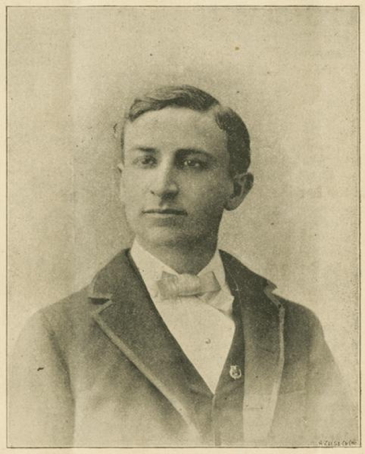Liberty Matters
Some Quick Notes in Response to Issues Raised in the Conversation
 Fetter's view of capital, being consistent with Mises's, is one that is applicable to an institutionally specific society and is thus, as Hodgson agrees, historically specific to that type of society we call capitalist, one based on private property, profit, and loss. As Mises would have it, under socialism, capital goods exist but not capital.
Fetter's view of capital, being consistent with Mises's, is one that is applicable to an institutionally specific society and is thus, as Hodgson agrees, historically specific to that type of society we call capitalist, one based on private property, profit, and loss. As Mises would have it, under socialism, capital goods exist but not capital.It is true that Mises's treatment about this in Human Action (1949) and elsewhere is ambiguous enough to consider him inconsistent. (See Braun 2017 and Braun, Lewin, and Cachanosky 2016.) But, for what it's worth, I am not so sure. Careful contextual analysis of what Mises says in perhaps problematic passages could lead one, if one were so inclined, to interpret Mises as consistent with the Fetter. It's probable that no complete resolution is possible here, but it doesn't really matter that much.
I agree with Joe Salerno that Böhm-Bawerk is essentially a value-subjectivist on capital and interest. I am clear on this point in my own work, though in this conversation I may have left a different impression, and it is appropriate for Salerno to point that out (without, however, finding it necessary to suggest that I did not know this ☺). The bigger point is that Böhm-Bawerk is his construction of the average period of production clearly created a construct that could and would be interpreted variously along Ricardian and neoclassical (aggregate physical capital) lines. In his use of labor inputs as a metric for weighting the time involved in the production process, he clearly invited a physical-capital interpretation, and, though only a small part of this overall work, it is for this that his capital theory was mostly known, much controversy has centered on it. Carl Menger reportedly considered it a grave error is his disciple's work.[19]
Endnotes
[19.]I have discussed Böhm-Bawerk's theory at length in numerous publications, most recently in Lewin and Cachanosky 2019.
Copyright and Fair Use Statement
“Liberty Matters” is the copyright of Liberty Fund, Inc. This material is put on line to further the educational goals of Liberty Fund, Inc. These essays and responses may be quoted and otherwise used under “fair use” provisions for educational and academic purposes. To reprint these essays in course booklets requires the prior permission of Liberty Fund, Inc. Please contact oll@libertyfund.org if you have any questions.